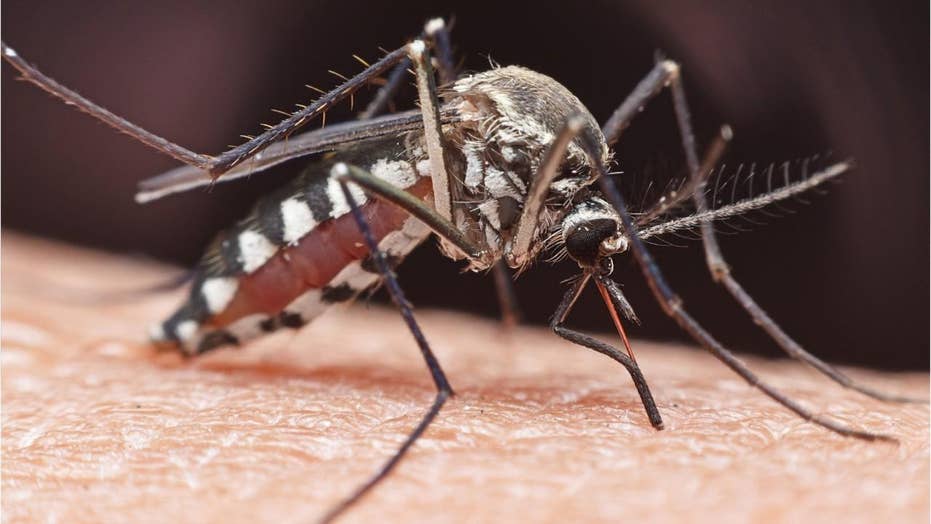Home » Health News »
Massachusetts man diagnosed with deadly mosquito-borne virus; risk raised to 'critical' in nearby areas

How to keep mosquitoes away this summer
Hot and humid weather brings out those pesky mosquitoes. Here are a few simple tips to live a mosquito-free summer.
The first case of the potentially deadly Eastern Equine Encephalitis (EEE) virus has been confirmed in a Massachusetts man, the state’s department of public health announced over the weekend.
The man, who was not identified, is over 60 years old and lives in southern Plymouth County, according to a Saturday announcement from the Massachusetts Department of Public Health.
The human case is the first in the state since 2013. Laboratory testing confirmed the man’s diagnosis.
POTENTIALLY FATAL MOSQUITO-BORNE EEE VIRUS DETECTED IN DELAWARE: STATE OFFICIALS
“The risk level in nine communities has been raised to critical as a result,” health officials said, noting those communities include Carver, Lakeville, Marion, Middleborough, Rochester and Wareham in Plymouth County, and Acushnet, Freetown and New Bedford in Bristol County.
Additionally, 15 communities in southeastern Massachusetts are at high risk for the EEE virus, while another 18 are at moderate risk.
EEE, according to the Centers for Disease Control and Prevention (CDC), is a rare disease that’s spread by infected mosquitoes. EEEV “is one of a group of mosquito-transmitted viruses that can cause inflammation of the brain (encephalitis),” the federal health agency says.
EEE is more common in Atlantic and Gulf Coast states, though the CDC said some cases have been reported in the Great Lakes area. It’s rare; only 5 to 10 cases are reported each year in the U.S.
Symptoms of EEE typically appear four to 10 days after a person is bitten by an infected mosquito. Severe cases of the virus “begin with the sudden onset of headache, high fever, chills and vomiting,” per the CDC, which noted, “the illness may then progress into disorientation, seizures and coma.”
One-third of those infected with EEEV die, while survivors typically have “mild to severe brain damage.”
There’s no specific treatment for the infection, either.
UK WOMAN DEVELOPS SEPSIS FROM BLISTER ON HEEL, CLAIMS SHE 'COULD HAVE LOST HER LEG'
“Antibiotics are not effective against viruses, and no effective antiviral drugs have been discovered. Severe illnesses are treated by supportive therapy, which may include hospitalization, respiratory support, IV fluids and prevention of other infections,” the CDC says.
The best way to prevent EEEV and other mosquito-borne ailments is by draining standing water — like in birdbaths, buckets or on pool covers — as stagnant water can serve as a breeding ground for these insects. Other preventive measures include covering skin with long-sleeved pants and shirts while outside and properly using insect repellent containing DEET.
In Massachusetts, state officials plan to conduct aerial spraying “in specific areas of Bristol and Plymouth counties to reduce the mosquito population and public health risk,” they said.
Source: Read Full Article


